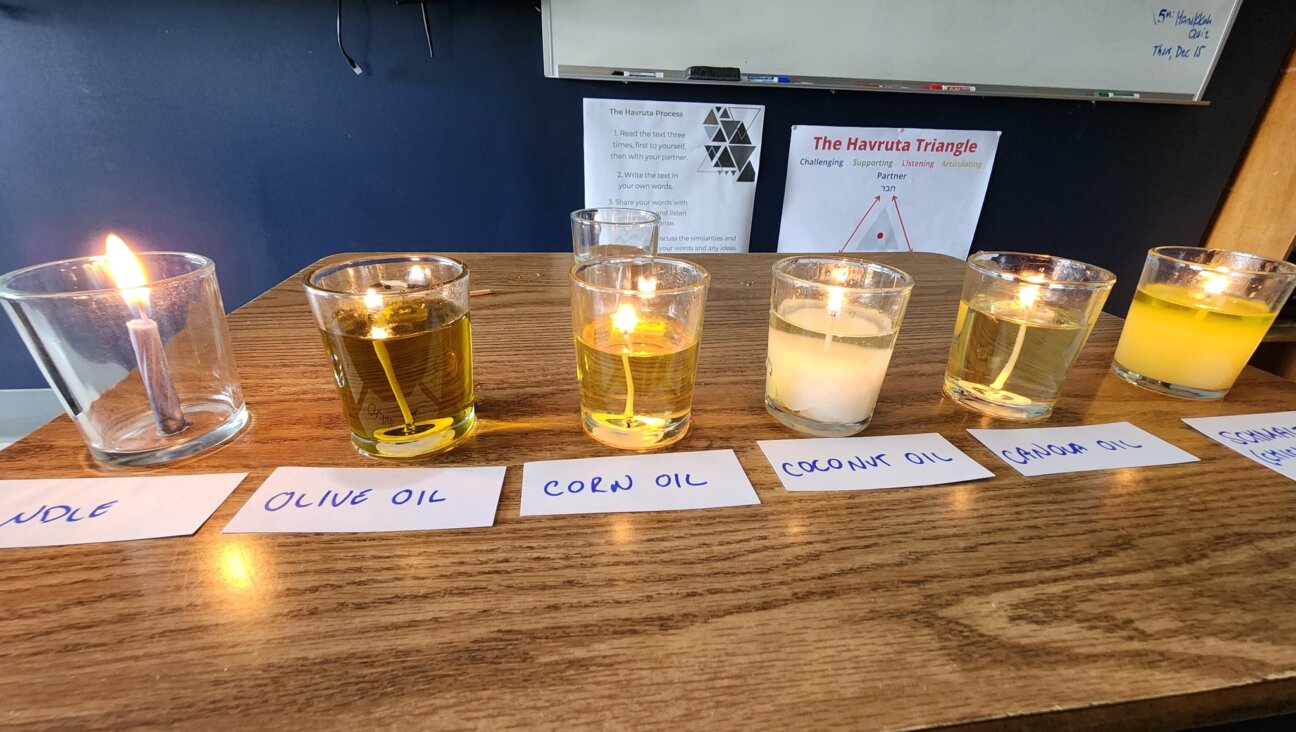5th grade scientists conduct a Hanukkah experiment to answer a burning question
Six different oils — which is the best for a menorah?

Six different oils — which is the best for a menorah?

Maia Hirschbein with some of her favorite olive oils. Photograph by Emily Potter It was in an olive grove in Tuscany that Maia Hirschbein had an epiphany that would determine her future. Already a food lover, she had come to Italy in 2012 to study its food, culture and language, and with no other particular…

Olive-oil expert Maia Hirschbein’s mother used to use low-quality olive oil in her cooking, but when she switched to the high-quality stuff, her challah and other dishes were transformed. Thinkstock ½ cup warm water 1 package or 1 tablespoon yeast 1 tablespoon sugar ½ cup warm water ½ cup extra-virgin olive oil 1 ½ teaspoons…

Courtesy Wikimedia Commons There are so many ways to make latkes. Some use canola or peanut oil to fry latkes. In my own feeble attempt to make latkes a bit healthier, I use olive oil. But I usually make them without thinking twice about whether there will be enough oil, or from where the oil…

Thinkstock Oil is certainly a controversial subject, with issues ranging from fat content to smoke point to quality. Each nutritional school of thought seems to offer a different perspective. In honor of Hanukkah, Judaism’s celebration of oil, here is yet another: the holistic point of view. As a student of traditional Chinese medicine, I love…

For a slick Hanukkah gift, think oil. Sprayer and cruet images courtesy of Williams-Sonoma Gift No. 2 What would Hanukkah be without oil? A very sad celebration of dry doughnuts, tasteless latkes and darkness, I’m sure. This season, celebrate one of the eight days of light with the gift of oil — in three forms….

The miracle of Hanukkah was not, alas, brought about by a latke. The eternal flame, it seems, was kept alive not by everyone’s favorite fried Jewish food, but by olive oil. According to historians, there can be little doubt that the oil used to light the menorah 2,200 years ago was olive oil. In ancient…

You can hardly call Israeli olive oil a new product — the roots of olive trees in Israel can be tracked back at least 7,000 years, and remnants of olive oil presses dating to the 9th Century B.C.E. have been unearthed. (Olives are also one of the seven species mentioned in Deuteronomy.) But the awareness…








100% of profits support our journalism